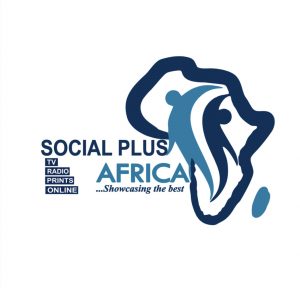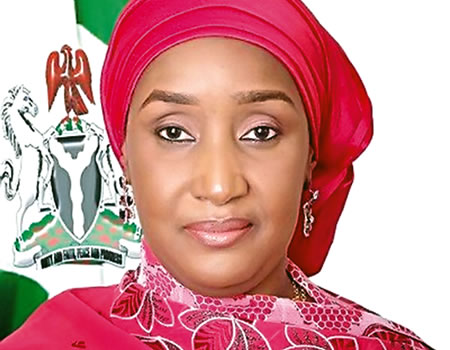The attention of the Federal Ministry of Humanitarian Affairs, Disaster Management and Social Development is drawn to a statement credited to the Bauchi State Governor, His Excellency, Senator Bala Mohammed, who alleged that “over N1trilion federal government’s Social Investment Programme (SIP) has been siphoned by public and political office holders under president Muhammadu Buhari’s nose”.
The Governor, who further stated that “corruption has already crashed the Federal Government’s SIP programme to its knees, challenged the FG to adopt the system of empowerment his administration is doing in Bauchi state”.
The above statement was made at the launch of the Kaura Economic Empowerment Programme (KEEP), during which he was also quoted to have declared, amongst others, that “today, the social investment programme has collapsed and nobody is getting anything”.
The Ministry wishes to categorically affirm that the above unsubstantiated statements credited to the Bauchi State Governor are manifestly false, and have absolutely no bearing to the realities on ground.
The Federal Government’s National Social Investment Programme (NSIP) launched by His Excellency, President Muhammadu Buhari in 2016 and currently being supervised by the Ministry of Humanitarian Affairs, Disaster Management and Social Development is very much alive functional, dynamic and increasingly expanding to reach and continue to make a significant positive difference in the lives of even more poor and vulnerable households and beneficiaries nationwide, including Bauchi State. To claim otherwise will not be in tune with the realities on the implementation of the NSIP in his state, in particular, as regularly being reported in both the traditional and new media outlets.
By way of emphasis, the National Social Investment Programme (NSIP), though a Federal Government funded intervention, is strictly being implemented by state government appointed officials and indigenes, who are working tirelessly alongside the NSIP team at the national level to deliver the inherent benefits of the various programmes to the poor and vulnerable persons in their respective states, in line with the good intentions of Mr. President to lift 100 million Nigerians out of poverty by the year 2030. The head of the State NSIP implementation team is a Focal Person directly appointed by His Excellency, the Governor.
The entire beneficiaries and participants across all programmes (clusters) are bona fide indigenes of the state, just as payments to participants and beneficiaries are also made directly into their individual accounts.
For instance:
a) On the National Home-Grown School Feeding Programme (NHGSFP), all payments made to cooks, who are all employed and appointed by the state government, are effected through their individual accounts. Similarly, the food materials aggregators are directly engaged and introduced to the Ministry by His Excellency, the Governor, and are also directly paid through their respective company accounts. In Bauchi State, there are 3,357 (three thousand, three hundred and fifty – seven) Primary schools with 444,099 (four hundred and forty – four thousand, and ninety- nine) pupils, 7,538 (seven thousand, five hundred and thirty – eight) cooks, and 12 (twelve) Food aggregators on the National Home-Grown School Feeding Programme.
b) Payments for N-Power beneficiaries, all indigenes of the State, are also made directly into their respective accounts. These N-Power volunteers are attached to schools, healthcare centres and ADPs across the state. Under Batch A, there were 4,837 (four thousand, eight hundred and thirty – seven) graduate beneficiaries, Batch B had 8,041 (eight thousand, and forty – one) graduate beneficiaries, 1,667 (one thousand, six hundred and sixty – seven) N-Build non-graduate beneficiaries, and 339 (three hundred and thirty – nine) N-Knowledge beneficiaries. Currently, under the Batch C1, there are 14,535 (fourteen thousand, five hundred and thirty – five) graduate beneficiaries, 629 (six hundred and twenty – nine) N-Knowledge beneficiaries, 301 (three hundred and one) Mobile Money Agents and 175 (one hundred and seventy – five) Phone Repairs Technicians participating in Bauchi State.
c) Under the Government Enterprise and Empowerment Programme (GEEP), all beneficiaries receive the proceeds of their interest-free and collateral-free soft loans directly into their respective accounts. In Bauchi State, the GEEP 2.0 has already registered a total of 37,907 (thirty – seven thousand, nine hundred and seven) from all the 20 (twenty) LGAs to participate under the MarketMoni, TraderMoni and FarmerMoni products.
d) On the Conditional Cash Transfer (CCT) cluster, the poor and vulnerable households are all identified and enrolled into the National Social Register (NSR) through an independent Community Based Targeting (CBT) strategy in each state. The NSR is generated from individual state social registers, which are domiciled at the State Ministry of Planning, including that of Bauchi State. From this NSR, the Conditional Cash Transfer beneficiaries are selected and enrolled into a National Beneficiary Register (NBR), which is used to make payments of N5,000 (five thousand Naira) monthly grants over a 2-year period. In Bauchi State, there are 75,110 (seventy – five thousand, one hundred and ten) poor and vulnerable households in the NSR, made up of 401,395 (four hundred and one thousand, three hundred and ninety – five) individuals, from which a total of 99,957 (ninety – nine thousand, nine hundred and fifty – seven) from all the 20 (twenty) LGAs are in the National Beneficiary Register (NBR) and are currently receiving monthly payments up to date.
e) Grant for Rural Women is a special project approved by Mr President aimed to empower rural poor and vulnerable women through an advance of a one off grant of N20,000 (twenty thousand Naira) to Rural Women with emphasis on engendering financial inclusion and, most specifically, developing and enhancing rural informal enterprises. In Bauchi State, a total of 8,671 (eight thousand, six hundred and seventy – one) women, all indigenes of Bauchi State benefitted.
f) Engagement of community-based Independent Monitors (IMs), who are all indigenes of the State, are deliberately deployed to ensure effective implementation of the NSIP as designed. In Bauchi State, a total of 268 (two hundred and sixty – eight) IMs from all the 20 LGAs have been engaged, deployed and are regularly being paid the monthly N30,000 (thirty thousand Naira) stipend directly into their personal accounts.
g) The Science Technology Engineering and Mathematics (STEM) centers with requisite IT tools and equipment were established in selected public science and technical secondary schools to strategically engender and promote the study of science, engineering and technology, along with building the IT skills of students. In Bauchi State, 13 (thirteen) such adequately equipped STEM centres are currently functional, with 3 (three) fully trained STEM teachers in each of the schools.
h) The Alternate School Programme (ASP) that targets to reach 1,000,000 (one million) Out Of School Children (OOSC) nationwide in 2022, as approved by Mr. President, is currently being implemented. Bauchi State is fully captured, like all other States Nationwide.
The above verifiable statistics serve as ample and credible evidence that the NSIP is fully operational and functional across Nigeria, including Bauchi State.
It is pertinent to stress at this point that poverty knows no pollical affiliation. The Ministry, therefore, wishes to congratulate His Excellency, the Bauchi State Governor, on the recent launch of the Kaura Economic Empowerment Programme (KEEP) and also welcome him on board to join it in the onerous fight against poverty in Nigeria, and in Bauchi State in particular.
God bless Nigeria.
Engr. Umar B. Bindir, PhD
National Coordinator, NSIP
Issued this 21th day of January, 2022






